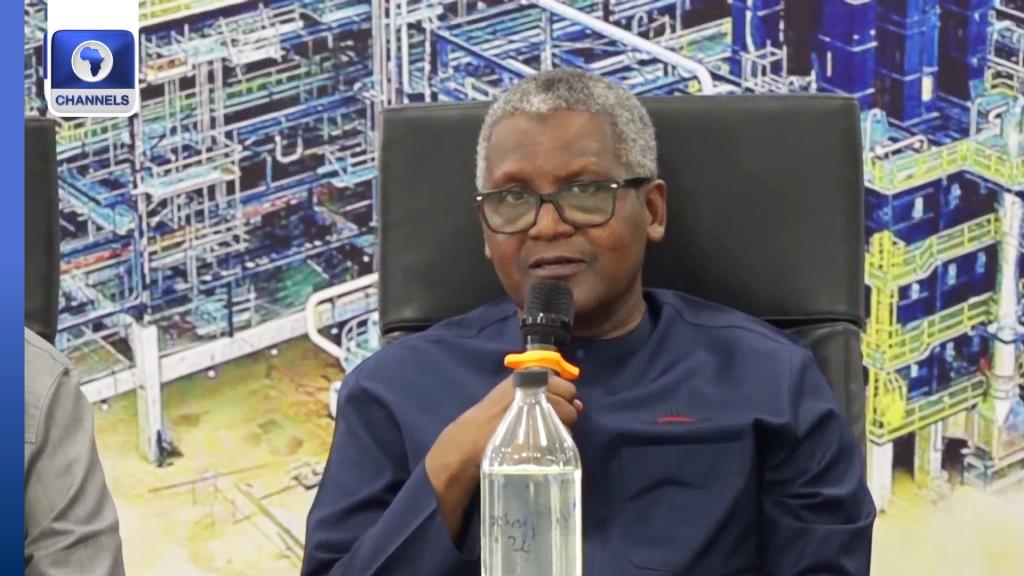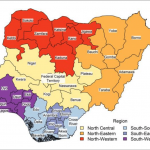Economy
AgriTech Start-up Peatuce Offers to Assist Local Farmers

For more than decades, numerous challenges have consistently plagued the operations of smallholder farmers on the African continent; from poor financing to stringent policies, haphazard regulation, climatic changes and obsolete technology, these challenges often create a stifled environment for the functionality of local farmers playing in the Agricultural value chain.
As such, farm productivity, efficiency, and profitability has been grossly irregular, most times, at a decline.
The aftermath of this irregularity is already negative, and could grow worse if it isn’t remedied timely, especially considering that the African population, which is expected to grow spontaneously by 2050 will have more mouths to feed, when in contrast, local food production is yet to circulate the present population.
All of these sum up to what propelled Charles Ogbaoku, alongside his formidable team; Kingley Ebere (COO), Patrick Emezieonyeije (Business Operations) and the rest of the team, to champion the course of remedying the situation via Peatuce.
Founded on February 1, 2018, Peatuce is set to improve the local food trade within and across Africa by increasing efficiency, service quality and enhancing profitability for farmers, suppliers and buyers.
Peatuce was created out of three major concerns; the ageing profile of local farmers, poor financial livelihood of smallholder farmers, and the continuous increase in global population. The latter is a stronger motivational factor for the team because, according to the United Nations, the world’s population will grow from today’s 7.5 billion to nearly 10 billion in 2050. As such, the demand for local food produce will be on the increase, and Africa would have to worry about feeding 1.5 billion people by 2030 and 2 billion by 2050, when in contrast, the continent currently depends largely on external aids and imports to cater for its 1.2 billion inhabitants. But here’s Peatuce, building a possible solution.
“We believe in a future where local farmers play a large role in feeding our communities, and we are working to making that a reality. We are focusing on emerging markets with a target of over 20,000 local farmers on our platform in 2018.”
Operating out of Nigeria, Peatuce has had remarkable milestones since inception — with more in the pipeline. Despite being a recent bird in the agricultural value chain, the platform has gone from launching the business operation, to sourcing and distributing for buyers, suppliers, local farmers, and creating presence in two Nigerian states. Peatuce now has over 500 local farmers, who are relying on it to facilitate their farming operations, expedite distribution and supply chain, as well as help enhance productivity of farm produce.
To further facilitate efficiency in its operations, Peatuce intends to leverage modern technology in no time.
“The problem is, the local produce trade has remained under-served by technology, we intend changing that narrative,” Kingsley, the COO says.
According to the team, Peatuce will tokenise its operation by implementing blockchain, a decentralised sourcing platform, accessible on the mobile app and web, later this year.
Economy
Dangote Refinery’s Domestic Petrol Supply Jumps 64.4% in December

By Adedapo Adesanya
The domestic supply of Premium Motor Spirit (PMS), also known as petrol, from the Dangote Refinery increased by 64.4 percent in December 2025, contributing to an enhancement in Nigeria’s overall petrol availability.
This is according to the Nigerian Midstream and Downstream Petroleum Regulatory Authority (NMDPRA) in its December 2025 Factsheet Report released on Thursday.
The downstream regulatory agency revealed that the private refinery raised its domestic petrol supply from 19.47 million litres per day in November 2025 to an average of 32.012 million litres per day in December, as it quelled any probable fuel scarcity associated with the festive month.
The report attributed the improvement to more substantial capacity utilisation at the Lagos-based oil facility, which reached a peak of 71 per cent in December.
The increased output from Dangote Refinery contributed to a rise in Nigeria’s total daily domestic PMS supply to 74.2 million litres in December, up from 71.5 million litres per day recorded in November.
The authority also reported a sharp increase in petrol consumption, rising to 63.7 million litres per day in December 2025, up from 52.9 million litres per day in the previous month.
In contrast, the domestic supply of Automotive Gas Oil (AGO) known as diesel declined to 17.9 million litres per day in December from 20.4 million litres per day in November, even as daily diesel consumption increased to 16.4 million litres per day from 15.4 million litres per day.
Liquefied Petroleum Gas (LPG) supply recorded modest growth during the period, rising to 5.2 metric tonnes per day in December from 5.0 metric tonnes per day in November.
Despite the gains recorded by Dangote Refinery and modular refineries, the NMDPRA disclosed that Nigeria’s four state-owned refineries recorded zero production in December.
It said the Port Harcourt Refinery remained shut down, though evacuation of diesel produced before May 24, 2025, averaged 0.247 million litres per day. The Warri and Kaduna refineries also remained shut down throughout the period.
On modular refineries, the report said Waltersmith Refinery (Train 2 with 5,000 barrels per day) completed pre-commissioning in December, with hydrocarbon introduction expected in January 2026. The refinery recorded an average capacity utilisation of 63.24 per cent and an average AGO supply of 0.051 million litres per day
Edo Refinery posted an average capacity utilisation of 85.43 per cent with AGO supply of 0.052 million litres per day, while Aradel recorded 53.89 per cent utilisation and supplied an average of 0.289 million litres per day of AGO.
Total AGO supply from the three modular refineries averaged 0.392 million litres per day, with other products including naphtha, heavy hydrocarbon kerosene (HHK), fuel oil, and marine diesel oil (MDO).
The report listed Nigeria’s 2025 daily consumption benchmarks as 50 million litres per day for petrol, 14 million litres per day for diesel, 3 million litres per day for aviation fuel (ATK), and 3,900 metric tonnes per day for cooking gas.
Actual daily truck-out consumption in December stood at 63.7 million litres per day for petrol, 16.4 million litres per day for diesel, 2.7 million litres per day for ATK and 4,380 metric tonnes per day for cooking gas.
Economy
SEC Hikes Minimum Capital for Operators to Boost Market Resilience, Others

By Adedapo Adesanya
The Securities and Exchange Commission (SEC) has introduced a comprehensive revision of minimum capital requirements for nearly all capital market operators, marking the most significant overhaul since 2015.
The changes, outlined in a circular issued on January 16, 2026, obtained from its website on Friday, replace the previous regime. Operators have been given until June 30, 2027, to comply.
The SEC stated that the reforms aim to strengthen market resilience, enhance investor protection, discourage undercapitalised operators, and align capital adequacy with the evolving risk profile of market activities.
According to the circular, “The revised framework applies to brokers, dealers, fund managers, issuing houses, fintech firms, digital asset operators, and market infrastructure providers.”
Some of the key highlights of the new reforms include increment of minimum capital for brokers from N200 million to N600 million while for dealers, it was raised to N1 billion from N100 million.
For broker-dealers, they are to get N2 billion instead of the previous N300 million, reflecting multi-role exposure across trading, execution, and margin lending.
The agency said fund and portfolio managers with assets above N20 billion must hold N5 billion, while mid-tier managers must maintain N2 billion with private equity and venture capital firms to have N500 million and N200 million, respectively.
There was also dynamic rule as firms managing assets above N100 billion must hold at least 10 per cent of assets under management as capital.
“Digital asset firms, previously in a regulatory grey area, are now fully covered: digital exchanges and custodians must maintain N2 billion each, while tokenisation platforms and intermediaries face thresholds of N500 million to N1 billion. Robo-advisers must hold N100 million.
“Other segments are also affected: issuing houses offering full underwriting services must hold N7 billion, advisory-only firms N2 billion, registrars N2.5 billion, trustees N2 billion, underwriters N5 billion, and individual investment advisers N10 million. Market infrastructure providers carry some of the highest obligations, with composite exchanges and central counterparties required to maintain N10 billion each, and clearinghouses N5 billion,” the SEC added.
Economy
Austin Laz CEO Austin Lazarus Offloads 52.24 million Shares Worth N227.8m

By Aduragbemi Omiyale
The founder and chief executive of Austin Laz and Company Plc, Mr Asimonye Austin Lazarus Azubuike, has sold off about 52.24 million shares of the organisation.
The stocks were offloaded in 11 tranches at an average price of N4.36 per unit, amounting to about N227.8 million.
The transactions occurred between December 2025 and January 2026, according to a notice filed by the company to the Nigerian Exchange (NGX) Limited on Friday.
Business Post reports that Austin Laz is known for producing ice block machines, aluminium roofing, thermoplastics coolers, PVC windows and doors, ice cream machines, and disposable plates.
The firm evolved from refrigeration sales to diverse manufacturing since its incorporation in 1982 in Benin City, Edo State, though facing recent operational halts.
According to the statement signed by company secretary, Ifeanyi Offor & Associates, Mr Azubuike first sold 1.5 million units of the equities at N2.42, and then offloaded 2.4 million units at N2.65, and 2.0 million units at N2.65.
In another tranche, he sold another 2.0 million units at a unit price of N2.91, and then 5.0 million units at N3.52, as well as about 4.5 million at N3.87 per share.
It was further disclosed that the owner of the company also sold 9.0 million shares at N4.25, and offloaded another 368,411 units at N4.66, then in another transaction sold about 6.9 million units at N4.67.
In the last two transactions he carried out, Mr Azubuike first traded 10.0 million units equities at N5.13, with the last being 8.5 million stocks sold at N5.64 per unit.
-

 Feature/OPED6 years ago
Feature/OPED6 years agoDavos was Different this year
-
Travel/Tourism9 years ago
Lagos Seals Western Lodge Hotel In Ikorodu
-

 Showbiz3 years ago
Showbiz3 years agoEstranged Lover Releases Videos of Empress Njamah Bathing
-

 Banking8 years ago
Banking8 years agoSort Codes of GTBank Branches in Nigeria
-

 Economy3 years ago
Economy3 years agoSubsidy Removal: CNG at N130 Per Litre Cheaper Than Petrol—IPMAN
-

 Banking3 years ago
Banking3 years agoFirst Bank Announces Planned Downtime
-

 Banking3 years ago
Banking3 years agoSort Codes of UBA Branches in Nigeria
-

 Sports3 years ago
Sports3 years agoHighest Paid Nigerian Footballer – How Much Do Nigerian Footballers Earn













